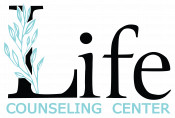The physical health wheel refers to the well-being of a child’s body. What are your child’s physical needs to help his or her body grow properly? Are his body chemicals, parts and systems working as closely as possible to the way they were designed to run?
Parents who want to help facilitate their children’s physical health will do what is necessary to prevent disease whenever possible and treat disease, when it occurs, as early as possible. When illness or disorder occurs, being physically healthy involves learning to cope and adapt as needed. In addition to having immunizations provided, a child needs regular physical activity, rest and proper nutrition. Under normal circumstances, providing these basic needs for a child will help him grow and thrive as he develops.
It’s important to note that a child whose body lacks optimum physical “wholeness,” such as those who have suffered an accident or have a congenital disorder of some kind, can still be highly healthy if his emotional, relational and spiritual health is good.
For example, my daughter Kate was born with cerebral palsy. Kate experienced a significant amount of brain damage while still in the womb. Her doctors believed she had suffered a stroke before she was born, which resulted in the left side of her body being weaker and more spastic than the right side. The right side was affected as well. The brain damage dramatically slowed Kate’s physical development, and she faced several challenges before she even became a teenager.
By the time she turned thirteen years of age, Kate had already had many operations to straighten her limbs and eyes. She had worn braces and splints, casts and patches and she was in a wheelchair for a while. At age 12, she developed a severe seizure disorder, which forced her to spend time in an intensive care unit on a ventilator. She nearly died.
Now a young adult, Kate has overcome many medical obstacles, but she still isn’t “normal” physically. Nevertheless, her mother and I consider her to be fairly healthy physically, because Kate has learned to cope and adapt. She takes care of herself, is up-to-date on her immunizations, takes her medications, makes it to her doctor appointments and does her own self-care. Her health is not perfect, but her physical health is reasonably balanced.
Under the circumstances, it would be easy for Kate to cave in to the physical challenges she continues to face. Instead, she works hard to keep emotionally, relationally and spiritually healthy. Her ability to do what it takes to be as physically healthy as possible is strongly dependent upon the other three areas of health.
Does your child face difficult physical challenges? Don’t give up on the notion of helping him become highly healthy. With encouragement and support, the child with physical limitations can accomplish feats thought to be impossible for him. And there’s much more to being a substantive human being than having a near-perfect body. The activity of the mind and soul are more central to being highly healthy than physical health itself. Kate says, “A healthy child is one who is not only physically healthy—exercises, eats the right amount of each food group (including a little chocolate thrown in now and then)—but is also emotionally and spiritually healthy.” Those are words to live by, Kate.



